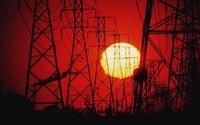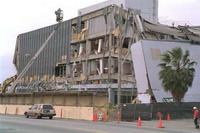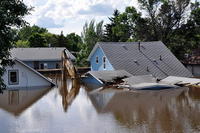-
50-state roadmap to renewable energy unveiled
Researchers recently developed detailed plans to transform the energy infrastructure of New York, California, and Washington states from fossil fuels to 100 percent renewable resources by 2050. The new roadmap to renewable energy for all fifty states was presented on 15 February at the annual meeting of the American Association for the Advancement of Science (AAAS) in Chicago. The online interactive roadmap is tailored to maximize the resource potential of each state.
-
-
Iran-Russia oil deal threatens nuclear negotiations
Iran said that in exchange for Iranian oil, Russia could build a second reactor at Iran’s Bushehr nuclear power plant. Russia could also provide Iran with trucks, railroad tracks, mini-refineries, grain, and other goods for Iranian oil. In a deal worth $1.5 billion a month, Iran would export 500,000 barrels of oil per day to Russia. The deal would increase Iran’s oil exports, which have been reduced to about one million barrels a day by American and European sanctions aimed at curbing Iran’s nuclear program.
-
-
Out-of-control giant satellite poses “Gravity”-style space debris threat

Envisat, a £1.8 billion, 9-meter-long behemoth, was launched by the European Space Agency (ESA) in 2002, and used ten sophisticated sensors to observe and monitor Earth’s land, atmosphere, oceans and ice caps. ESA, however, lost contact with the satellite in April 2012 — and declared the end of the mission soon after. The satellite now orbits the Earth free from human control at an altitude of 790 km — where the amount of space debris around the planet is greatest. In a paper, University of Leicester students point out that unless it is brought under control, Envisat could potentially pose a threat similar to the events which plague Sandra Bullock in the Oscar-nominated sci-fi thriller “Gravity.”
-
-
Skeptics doubt voluntary Cybersecurity Framework will achieve its goal
The Framework for Improving Critical Infrastructure Cybersecurity, developedby NIST following Executive Order 13636to promote cybersecurity, has been received with both support and skepticism from critical infrastructure industries. The 41-page document, put together by industry and government experts, offers guidelines on cybersecurity standards and best practices to critical infrastructure firms. It says its role is to be a complement to industries’ existing risk management practices.Skepticssay that without incentives, legislation, or enforcement, the guidelines will not be adopted.”The marketplace will punish any company that implements anything that could be considered excessive security, because it will increase their costs,” says an industry insider.
-
-
Y-12 protestors receive lengthy prison terms from judge
Judge Amul R. Thapar sentenced three peace protestors who breached the Y-12 Nuclear Security Complex at Y-12 National Security Complexat Oak Ridge, Tennessee, to lengthy sentences in federal prison. Judge Thapar stated that he did not believe the three defendants — Sister Megan Rice, 84. Michael R. Walli, 65, and Greg Boertje-Obed, 59 — were terrorists but, nevertheless, they had broken the law and must serve sentences which demonstrated that the law should be taken seriously.To reach the Highly Enriched Uranium Materials Facility (HEUMF) building at Y-12, the three peace activists, led by the octogenarian Sister Rice, cut through four fences and escaped detection by security guards authorized to use lethal force, and by ground sensors, sophisticated surveillance cameras, and other security equipment described by Y-12 as “…the most stringent security system in the world.”
-
-
Sensors would spot structural weaknesses in bridges, stadiums before they collapse
A team of engineers, with a grant of $1 million from the government of Qatar, will work to develop a wireless sensor network which will monitor vibrations, sagging, and stresses to assess a structure’s ability to carry its load. The proposed system would not only detect damage after it occurs, but would aim to predict it before it takes place.
-
-
Studying the 2011 Mississippi and Ohio rivers flood for better flood preparedness
In May 2011, when the U.S. Army Corps of Engineers used explosives to breach a levee south of Cairo, Illinois, diverting the rising waters of the Mississippi and Ohio rivers to prevent flooding in the town, about 130,000 acres of Missouri farmland were inundated. It was the largest flood of the lower Mississippi ever recorded. Researchers took advantage of this “once-in-a-scientific-lifetime” occurrence to study the damage in order to demonstrate that landscape vulnerabilities can be mapped ahead of time to help communities prepare for extreme flooding.
-
-
Implementing solar radiation management, then stopping, would accelerate climate change
One geoengineering approach to slowing or reversing climate change is solar radiation management, which envisions spraying tiny sulfur-based particles into the upper atmosphere to reflect sunlight. This is similar to what happens after a major volcanic eruption, and many experts believe the technique is economically and technically feasible. Continuous implementation over years, however, depends on technical functioning, continuous funding, bureaucratic agreement, and lack of negative side effects. In a new study, researchers say that spraying reflective particles into the atmosphere to reflect sunlight and then stopping it could exacerbate the problem of climate change.
-
-
Fashioning an effective disaster mitigation approach in an uncertain world
The dramatic images of natural disasters show that nature, not the people preparing for hazards, often wins the high-stakes game of chance. Sometimes nature surprises us when an earthquake, hurricane, or flood is bigger or has greater effects than expected. In other cases, nature outsmarts us, doing great damage despite expensive mitigation measures or causing us to divert limited resources to mitigate hazards that are overestimated. Much of the problem comes from the fact that formulating effective natural hazard policy involves combining science, economics, and risk analysis to analyze a problem and explore costs and benefits of different options in situations where the future is very uncertain.
-
-
Power cuts will be more common in the future

U.S. figures show that since 2007, commercial and domestic air-conditioning alone consumed 484billion kilowatt hours of electricity — not much more than the country’s total energy consumption in the mid-1950s. The American Society of Civil Engineers (ASCE) has warned that U.S. generation systems could collapse by 2020 without $100 billion of new investment in power stations. Demands of high-powered electrical appliances, a growing world population, and inadequate investment in the power sector will create more frequent power blackouts in Western societies.
-
-
Protecting Earth from menacing asteroids
Tracking near-Earth asteroids has been a significant endeavor for NASA and the broader astronomical community, which has discovered 10,713 known near-Earth objects (NEO) to date. NASA says that it is now pursuing new partnerships and collaborations in an Asteroid Grand Challenge to accelerate NASA’s existing planetary defense work, which will help find all asteroid threats to human population and know what to do about them. In parallel, NASA is developing an Asteroid Redirect Mission (ARM) — a first-ever mission to identify, capture, and redirect an asteroid to a safe orbit of Earth’s moon for future exploration by astronauts in the 2020s.
-
-
Santa Monica to identify, require retrofitting for, quake-vulnerable buildings

Twenty years ago the city of Santa Monica, California passed laws requiring retrofitting of concrete, steel, and wood apartment buildings which were likely to collapse during an earthquake. The city stopped enforcing the laws a few years after it was passed. Beginning this year, Santa Monica will inspect, and require seismic retrofitting for, concrete, steel, and wood-frame buildings deemed vulnerable during a major earthquake.
-
-
Costs of extreme weather events multiply

The United States sustained $1.15 trillion in economic loss in the past thirty years due to extreme weather, a trend that will continue if state and local governments do not prepare for future weather disasters, according to Munich Re, the world’s largest risk insurer.The GAO’s Mark Gaffigan told lawmakers that as a result of extreme weather, the federal government’s crop insurance program had increased four-fold since 2003, and the flood insurance program has a $24 billion debt.
-
-
Israeli defense company launches cybersecurity solutions section
In recent months the Israel Aerospace Industries (IAI) has increased its cyberdefense-related activities. Esti Peshin, director of the company’s cyber section and a veteran of the IDF’s hush-hush sigint Unit 8200, says IAI is now developing solutions for clients in Israel and abroad. “We’re a start-up, but with the backing of a company that earns $3.5 billion a year,” she said. Ultimately, she implied, these defensive measures can be turned into offensive capabilities. “Intelligence is a subset of attack,” Peshin said. “This is, first of all, a national mission.”
-
-
New cyber-attack model helps hackers time the next Stuxnet
Taking the enemy by surprise is usually a good idea. Surprise can only be achieved if you get the timing right — timing which, researchers argue, can be calculated using a mathematical model, at least in the case of cyber-wars. The researchers say that based on the stakes of the outcome, a cyberweapon must be used soon (if stakes are constant) or later (if the stakes are uneven). In other words, when the gain from a cyberattack is fixed and ramifications are low, it is best to attack as quickly as possible. When the gain is high or low and ramifications are high, it is best to be patient before attacking.
-
More headlines
The long view
Water Wars: A Historic Agreement Between Mexico and US Is Ramping Up Border Tension
As climate change drives rising temperatures and changes in rainfall, Mexico and the US are in the middle of a conflict over water, putting an additional strain on their relationship. Partly due to constant droughts, Mexico has struggled to maintain its water deliveries for much of the last 25 years, deliveries to which it is obligated by a 1944 water-sharing agreement between the two countries.
Trump Is Fast-Tracking New Coal Mines — Even When They Don’t Make Economic Sense
In Appalachian Tennessee, mines shut down and couldn’t pay their debts. Now a new one is opening under the guise of an “energy emergency.”
Smaller Nuclear Reactors Spark Renewed Interest in a Once-Shunned Energy Source
In the past two years, half the states have taken action to promote nuclear power, from creating nuclear task forces to integrating nuclear into long-term energy plans.
Keeping the Lights on with Nuclear Waste: Radiochemistry Transforms Nuclear Waste into Strategic Materials
How UNLV radiochemistry is pioneering the future of energy in the Southwest by salvaging strategic materials from nuclear dumps –and making it safe.
Model Predicts Long-Term Effects of Nuclear Waste on Underground Disposal Systems
The simulations matched results from an underground lab experiment in Switzerland, suggesting modeling could be used to validate the safety of nuclear disposal sites.
